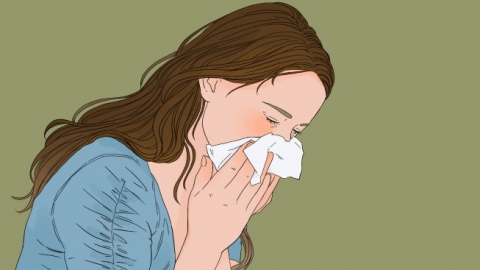What to do about low immunity, and how to restore it
Generally, low immunity may be caused by factors such as insufficient sleep, malnutrition, common cold, anemia, or chronic bronchitis. It is recommended to seek timely medical advice and, under a doctor's guidance, adopt general treatments or medication to restore immune function. Detailed explanations are as follows:

1. Insufficient Sleep
Long-term lack of sleep can interfere with the normal functioning of the immune system, potentially reducing the activity of immune cells such as T cells and B cells and affecting antibody production, thereby lowering immunity. It is important to maintain a regular sleep schedule, create a quiet, comfortable, dark, and temperature-appropriate sleep environment, and avoid using electronic devices before bedtime to prevent disruption of sleep by blue light.
2. Malnutrition
An unbalanced diet lacking in certain nutrients can affect the generation, development, and function of immune cells. For example, proteins are essential building blocks for immune cells and antibodies; protein deficiency can lead to reduced numbers and weakened function of immune cells. It is important to maintain a diverse diet, consume more foods rich in high-quality protein, and eat plenty of fresh vegetables and fruits to obtain various vitamins and minerals.
3. Common Cold
The common cold is mainly caused by viral infections such as rhinovirus and coronavirus. After a virus enters the body, the immune system initiates an immune response to fight the virus. During this process, the immune system consumes significant energy and immune cells, leaving the immune system in a fatigued state and resulting in decreased immunity. Symptoms such as nasal congestion and runny nose may also occur. Treatment may include medications such as pediatric paracetamol, chlorpheniramine, and pseudoephedrine granules,感冒清热颗粒 (Ganmao Qingre Granules), or compound paracetamol amantadine tablets, as directed by a doctor.
4. Anemia
Anemia is primarily caused by insufficient iron intake, poor absorption, or excessive loss leading to iron deficiency in the body. This may result in reduced oxygen-carrying capacity of red blood cells, depriving various tissues and organs of adequate oxygen supply, affecting the normal metabolism of immune cells, and subsequently lowering immunity. Symptoms such as pale complexion and dizziness may also appear. Treatment may include medications such as ferrous sulfate tablets, ferrous fumarate granules, or multivitamin iron oral solution, as prescribed by a doctor.
5. Chronic Bronchitis
Chronic bronchitis may be caused by long-term smoking, air pollution, repeated respiratory infections, and other factors. Long-term inflammation irritates the trachea and bronchi, damaging the airway mucosa and weakening the ability to clear pathogens, leading to recurrent respiratory infections and keeping the immune system in a constant state of stress, ultimately reducing immunity. Symptoms such as coughing and sputum production may also occur. Treatment may include medications such as amoxicillin capsules, cefuroxime axetil tablets, or ambroxol hydrochloride oral solution, as advised by a doctor.
In daily life, it is important to maintain a positive mindset, as long-term mental stress can also affect the immune system. Additionally, regular medical check-ups are essential to detect and treat hidden diseases early, thus maintaining good immune function.










